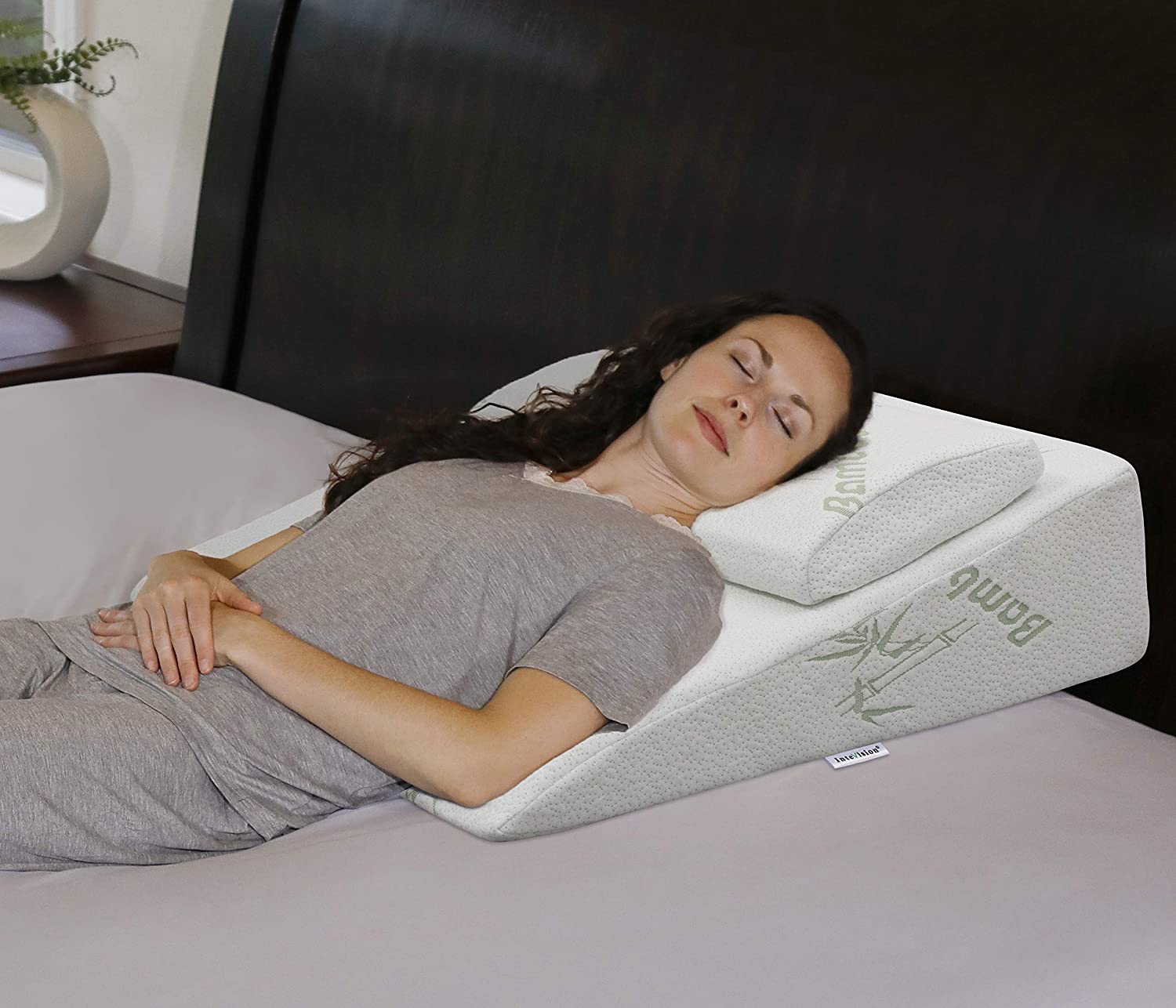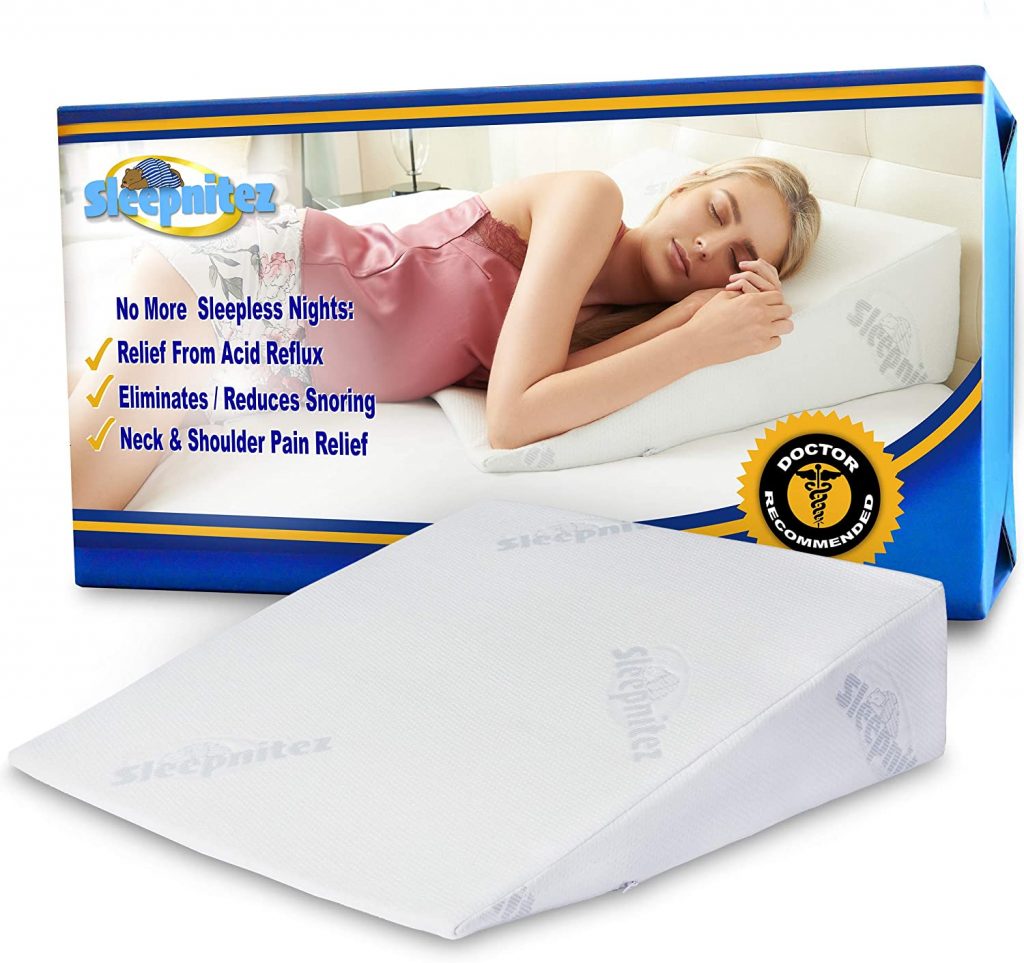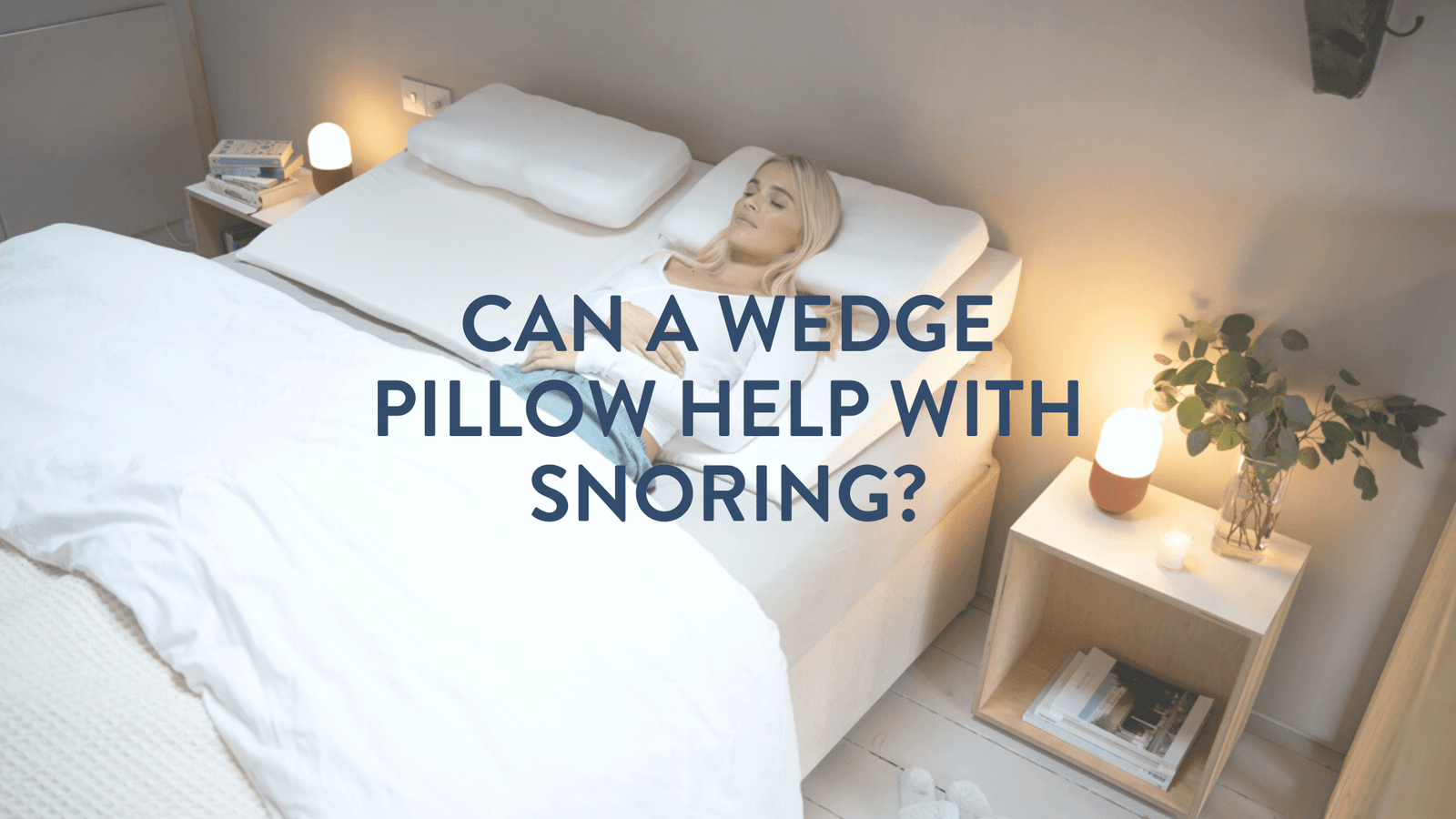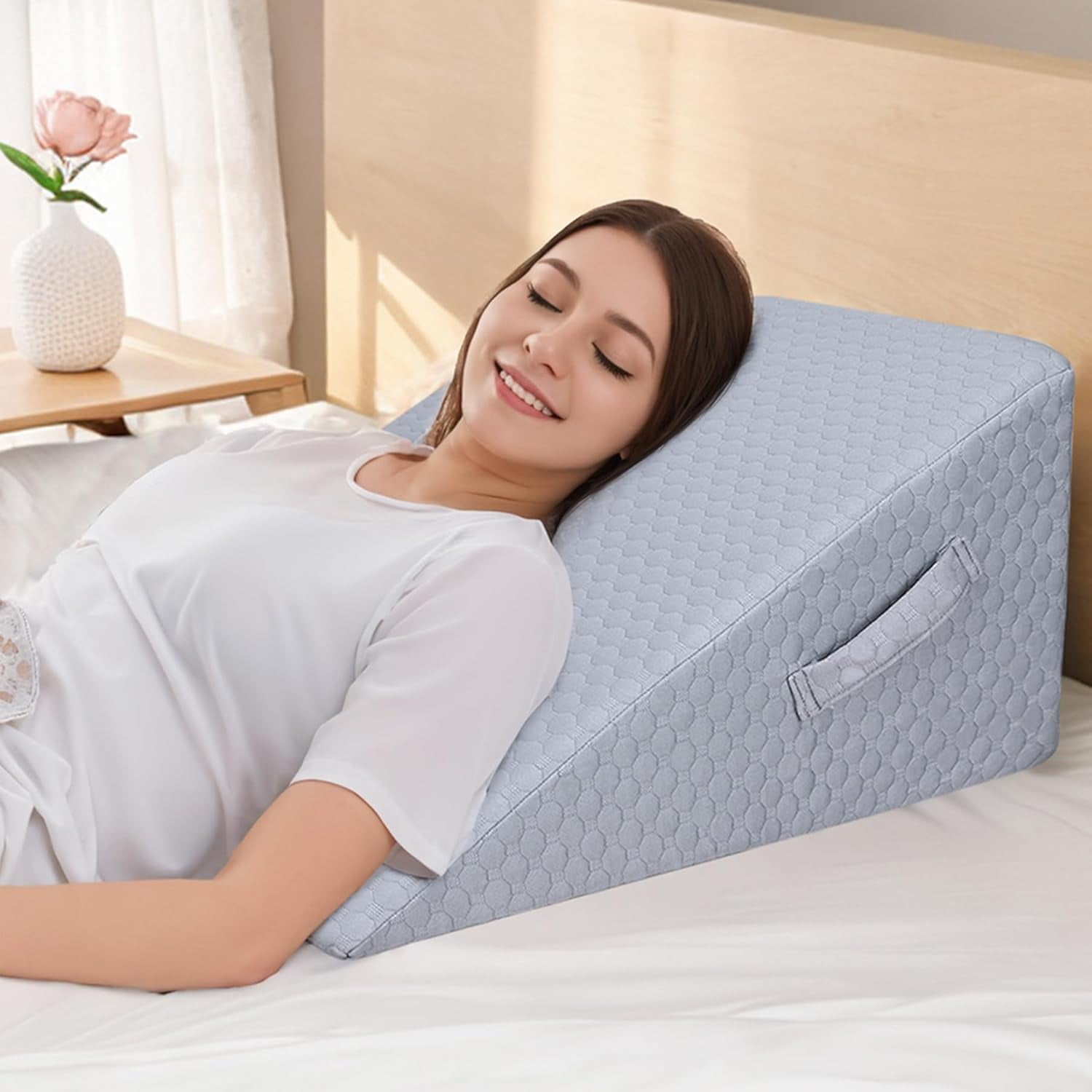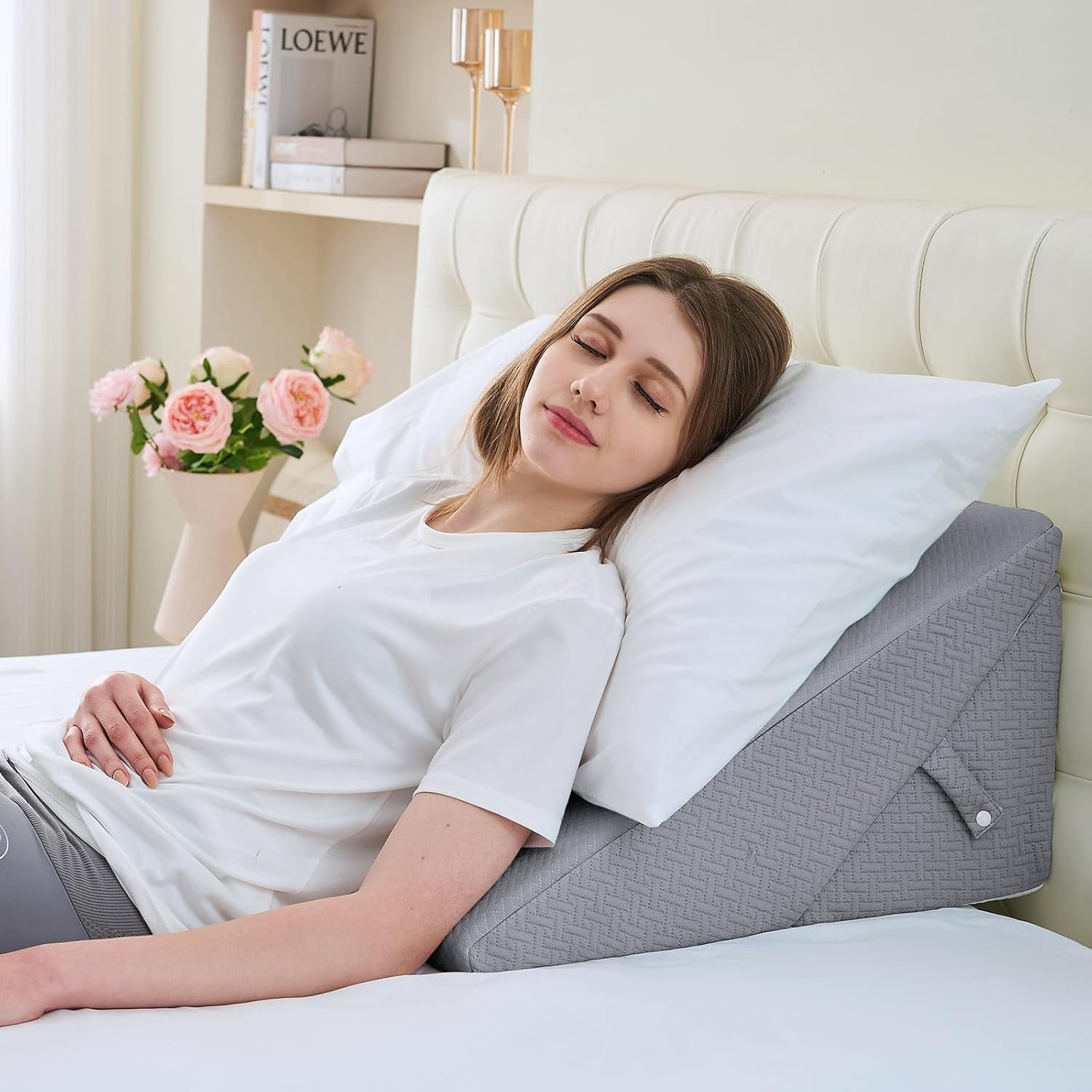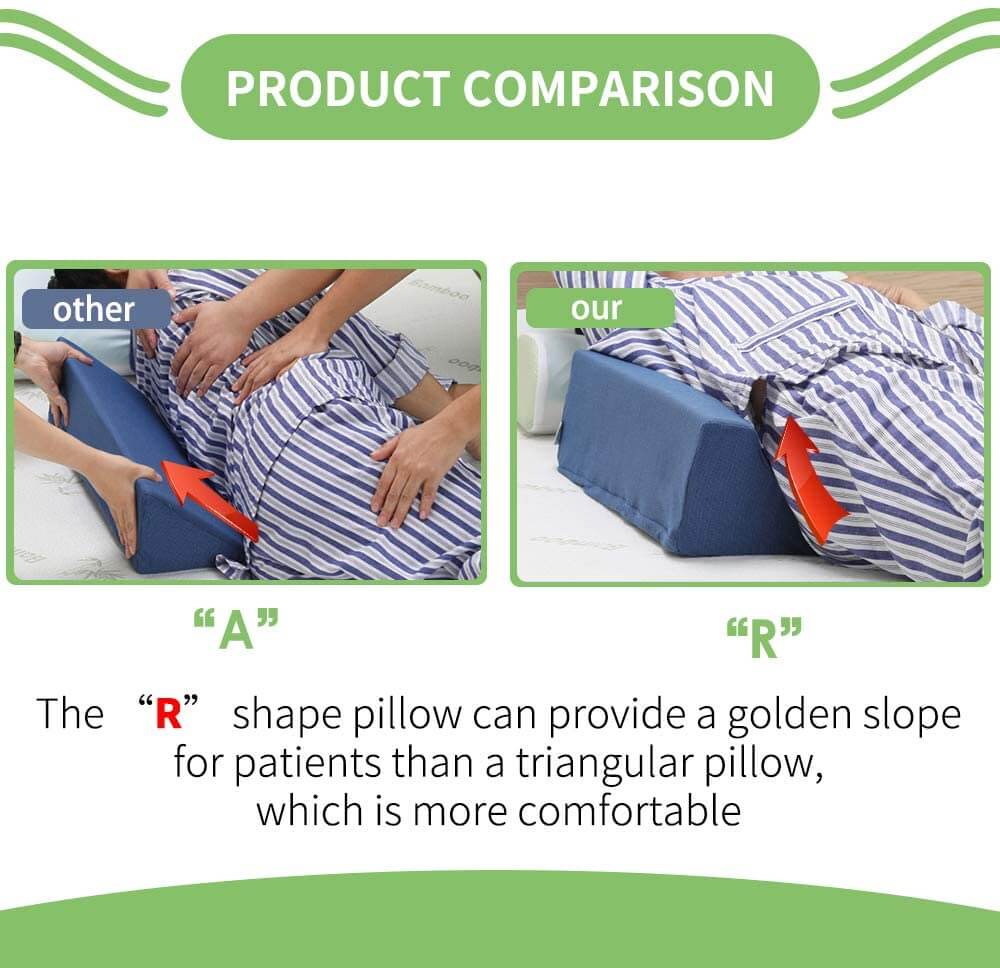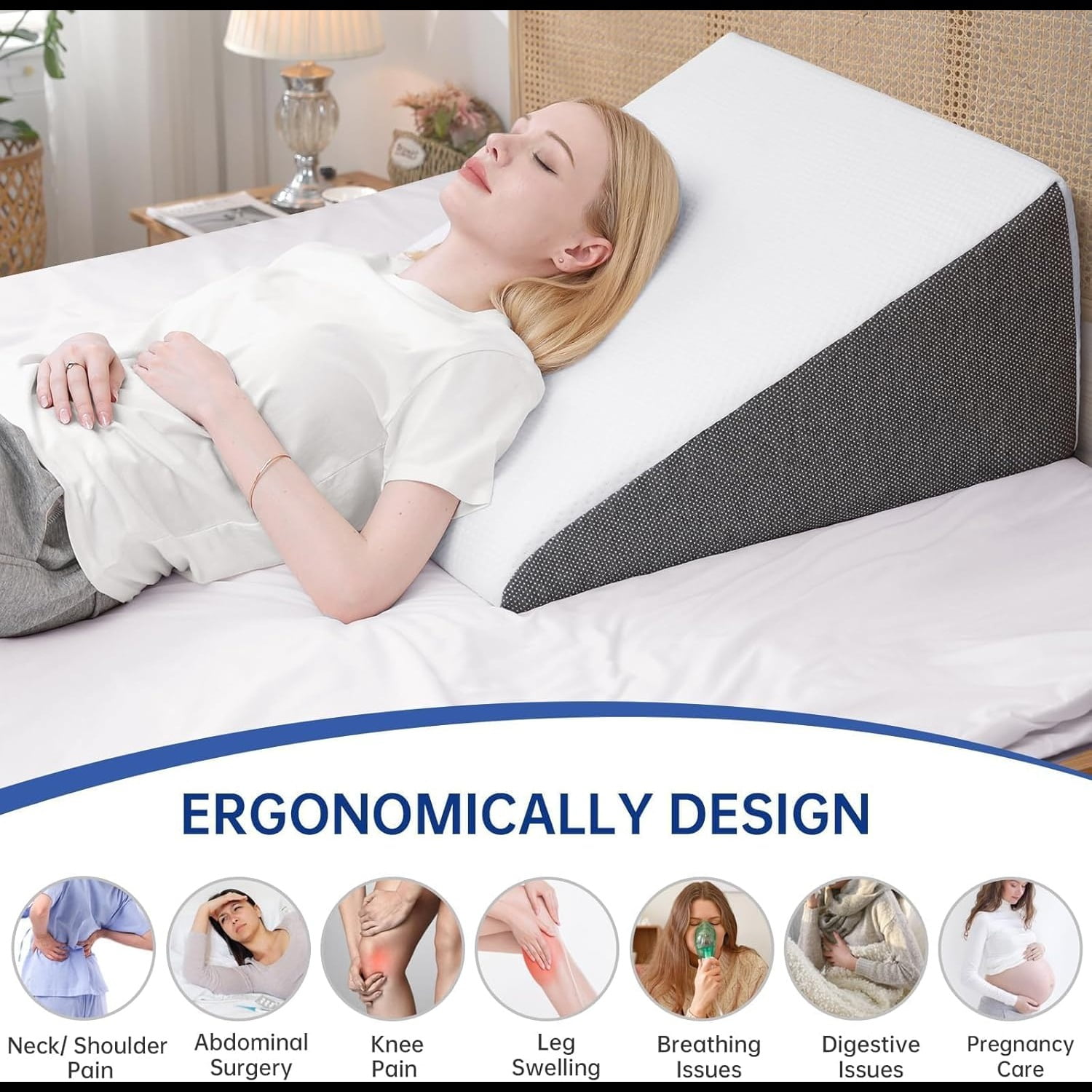Does A Wedge Pillow Help Snoring

Snoring, the nocturnal nuisance affecting millions worldwide, disrupts sleep not only for the snorer but also for their bed partners. While a myriad of solutions promise relief, the humble wedge pillow has emerged as a popular and seemingly simple approach. But does elevating your head with a wedge pillow truly alleviate snoring, or is it just another sleep-aid fad?
The answer is complex, and depends on the cause of the snoring. This article will delve into the science behind wedge pillows and their effectiveness in tackling snoring, examining the evidence and offering insights for those seeking a quieter night's sleep.
Understanding Snoring and Its Causes
Snoring occurs when air cannot flow freely through the nose and throat during sleep. This restricted airflow causes the tissues to vibrate, producing the characteristic snoring sound.
Factors contributing to snoring are varied, including anatomy, nasal congestion, sleep position, and lifestyle choices like alcohol consumption. Obstructive Sleep Apnea (OSA), a more serious condition, involves repeated pauses in breathing during sleep and is often associated with loud snoring.
How Wedge Pillows are Thought to Help
Wedge pillows are designed to elevate the head and upper body, typically at a 30- to 45-degree angle. The core idea is that this elevation can help to open up the airways and reduce pressure on the throat.
Proponents of wedge pillows suggest that elevating the head helps prevent the tongue and soft tissues in the throat from collapsing backward and obstructing airflow. This, in theory, reduces the vibrations and minimizes snoring.
Furthermore, wedge pillows can help alleviate nasal congestion by promoting sinus drainage. Clearer nasal passages can improve airflow and potentially reduce snoring caused by nasal obstruction.
The Evidence: What Does the Research Say?
While anecdotal evidence and testimonials abound, the scientific evidence regarding the effectiveness of wedge pillows for snoring is somewhat limited. Many studies on snoring focus on more comprehensive interventions like CPAP machines for OSA.
However, some studies suggest that positional therapy, which includes sleeping on one's side or with the head elevated, can reduce snoring in certain individuals. According to the American Academy of Otolaryngology, positional therapy can be effective for mild to moderate snoring that is positional in nature, meaning it is worse when sleeping on the back.
A 2008 study published in the journal "Sleep and Breathing" found that positional therapy reduced snoring in a significant number of participants. While the study did not specifically focus on wedge pillows, it suggests that elevating the head can be a helpful strategy for some snorers.
"Positional therapy can be an effective and non-invasive method to reduce snoring for individuals whose snoring is primarily positional," according to Dr. [Hypothetical Name], a sleep specialist at [Hypothetical Institution].
The effectiveness of a wedge pillow can also depend on the individual and the underlying cause of their snoring. Snoring caused by anatomical issues or severe OSA may not be significantly improved by a wedge pillow alone.
Who Might Benefit from a Wedge Pillow?
Individuals with mild to moderate snoring that is exacerbated by sleeping on their back are most likely to benefit from using a wedge pillow. Those experiencing nasal congestion or acid reflux may also find relief, as elevation can help with both conditions.
Pregnant women, who often experience increased nasal congestion and snoring due to hormonal changes, may find a wedge pillow a comfortable and helpful option. It's important to consult with a healthcare provider to rule out underlying issues.
It is crucial to note that a wedge pillow is not a substitute for medical diagnosis and treatment, especially if Obstructive Sleep Apnea (OSA) is suspected. OSA requires a sleep study and potentially more intensive interventions like CPAP therapy.
Choosing and Using a Wedge Pillow
Wedge pillows come in various shapes, sizes, and materials, including memory foam, polyfoam, and inflatable options. When choosing a wedge pillow, consider the angle of elevation, the firmness of the material, and your personal preferences.
A higher angle of elevation may be more effective for some individuals, while others may find it uncomfortable. Experimenting with different pillows may be necessary to find the best fit.
It's important to gradually adjust to sleeping on a wedge pillow to avoid neck or back pain. Starting with a lower angle and gradually increasing it can help your body adapt.
Conclusion: A Potential Aid, Not a Cure
Wedge pillows can be a useful tool in managing mild to moderate snoring, particularly for individuals whose snoring is positional or related to nasal congestion. However, they are not a guaranteed solution for all snorers and should not be considered a substitute for medical evaluation and treatment.
If snoring is persistent, loud, or accompanied by other symptoms such as excessive daytime sleepiness, it is essential to consult with a healthcare professional to rule out underlying conditions like OSA. A comprehensive sleep study can provide a more accurate diagnosis and guide appropriate treatment.
Ultimately, the decision to use a wedge pillow for snoring is a personal one. Weighing the potential benefits against the limitations and consulting with a healthcare provider can help individuals make informed choices and find the most effective strategies for a more restful and quieter night's sleep.
